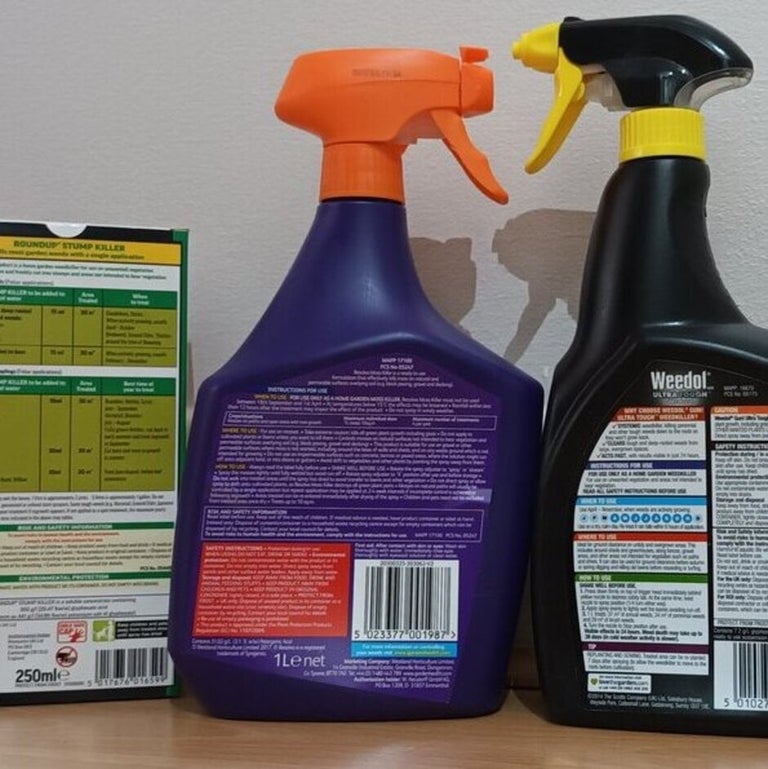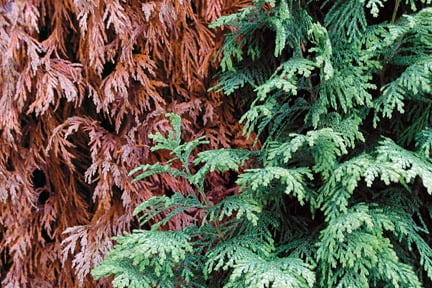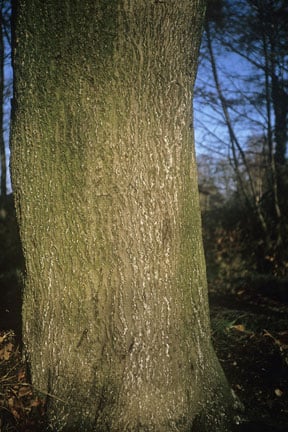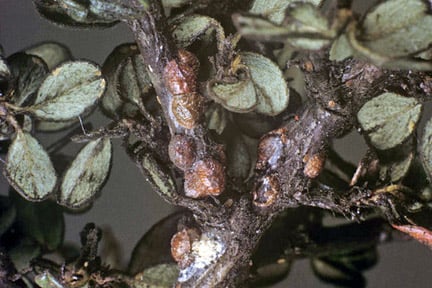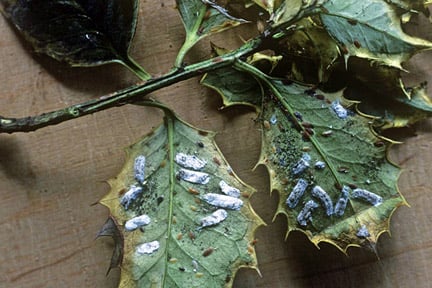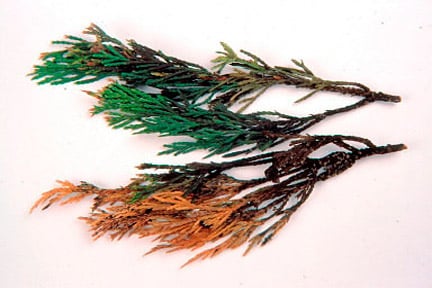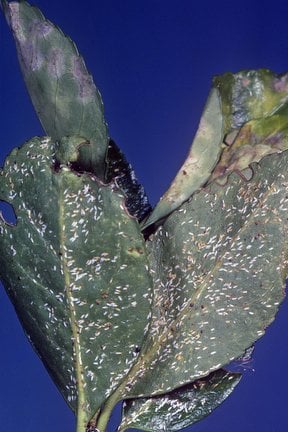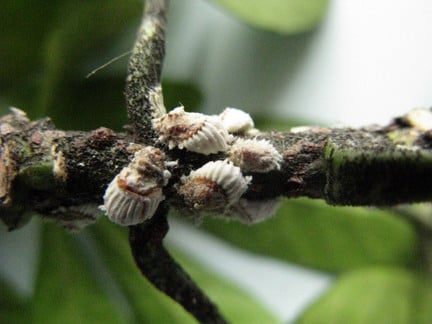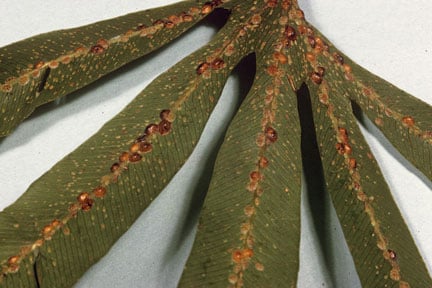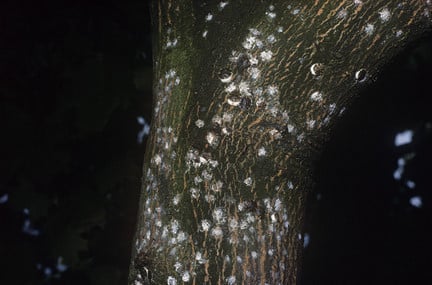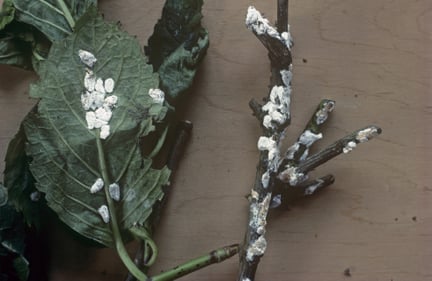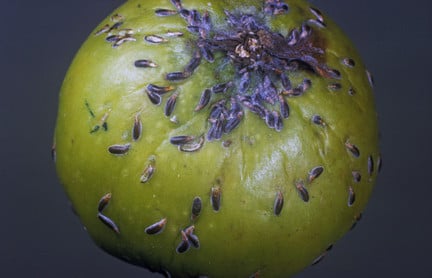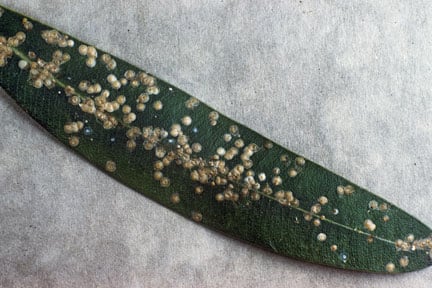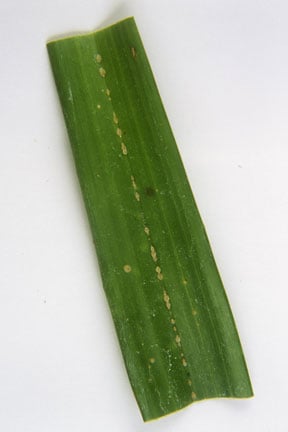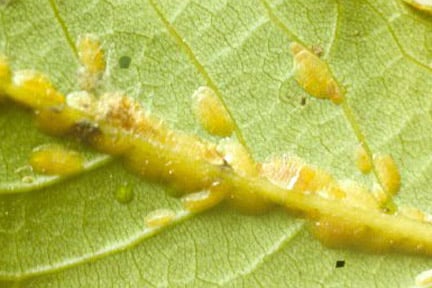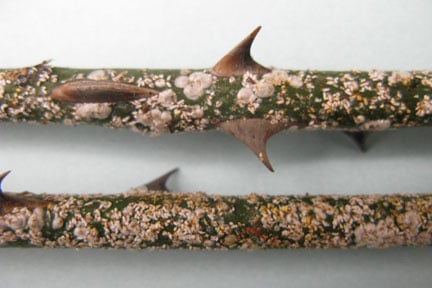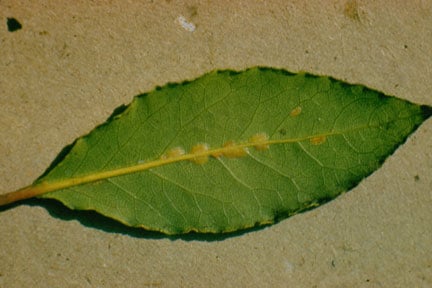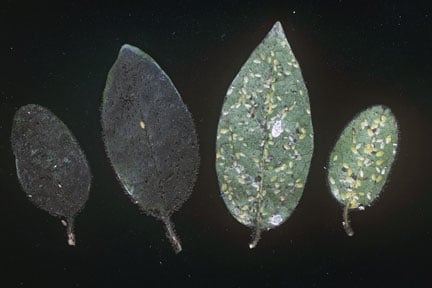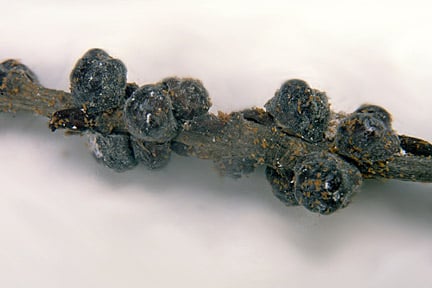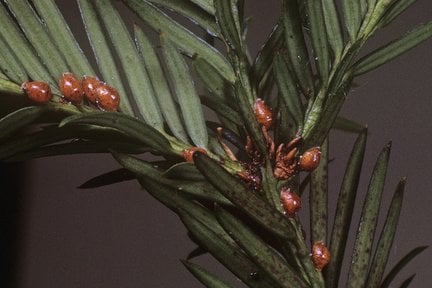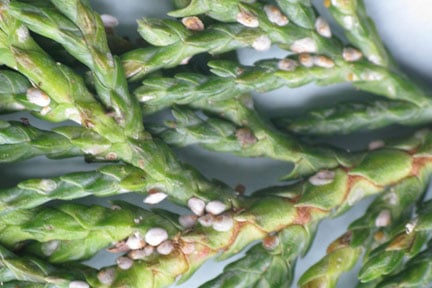
Quick facts
Common name - Juniper scale
Scientific name - Carulaspis juniperi
Plants affected - Junipers (Juniperus spp.) cypresses (Cupressus and Chamaecyparis), Leyland cypress (x Cuprocyparis leylandii) and Thuja
Main symptom - Small whitish brown scale insects on foliage
Most active - Summer
What is juniper scale?
Juniper scale is one of several species of scale insect that can be encountered by gardeners. Juniper scale females are apparent on foliage as flat, round white scales, with a pale yellow centre up to 1.5 mm in diameter. The males are narrower and reach 1 mm in length. It feeds on plant of junipers and some other conifers. The eggs of this scale insect hatch in June.
Scale insects are sap sucking true bugs belonging to several families in the Hemiptera. Typically the adults are immobile having a flattened or raised appearance, with no visible legs. They often look like a ‘scale’ on a leaf or stem, many species produce a white wax often covering egg masses. There are more than 100 species found in Britain, 26 of which have been introduced. More than 25 species can be found in gardens or on houseplants.
Symptoms
Juniper scale is often present on the foliage of susceptible conifers but are only a problem if a heavy infestation develops when there may be yellowing and die back of the foliage. Unlike many other scale insects this species does not produce honeydew.
There can be other reasons for brown patches in conifers including insects such as the cypress aphid. Large populations of juniper scale often seem to develop on plants that are already suffering a lack of vigour for these other reasons.
Management
- Where possible tolerate populations of scale insects. Well-tended healthy plants are able to tolerate light populations of these insects and so they do not necessarily require management
- Encourage predators in the garden, some ladybirds, parasitoid wasps and some birds will eat scale insects
- Heavily affected plants can be removed and replaced. Large populations of juniper scale often develop on plants that are already lacking vigour
